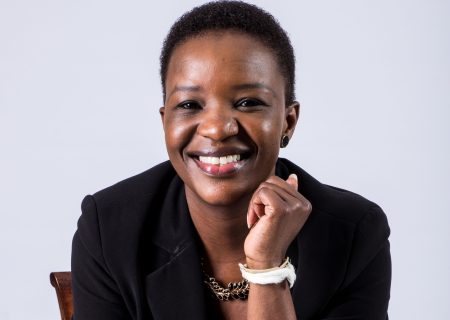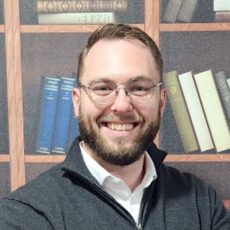You can also listen to this podcast on iono.fm here.
JEREMY MAGGS: Now more on a story that we have given some prominence to on the Moneyweb website. Results for the second sitting of the South African Institute of Chartered Accountants [Saica] qualifying examinations have not been good. In fact, the worst in the past six years, we read.
Only 14% of 1144 candidates who sat for the second sitting of the Initial Test of Competence [ITC] this year passed, compared to 40% who passed last year [and] 25% who passed in 2022 for the second examination.
The chief executive officer of Saica is Patricia Stock. We have spoken to her before on the programme. Patricia, welcome to you. So what specific factors then have contributed to the sharp decline in the rate?
PATRICIA STOCK: Good afternoon, Jeremy, to you and your listeners. Jeremy, the sharp decline in the pass rate is as a result of quite a number of factors.
But before I go to that, I must first express that as Saica, we definitely acknowledge that this low pass rate that we’ve seen – it remains a concern, and it requires fresh thinking around what opportunities arise because of this. So that we need to relook at our programmes and find opportunities to do things differently.
I’m going to start off with the role of Saica because that’s very important even for the listeners to understand.
We are regulated as a member of IFAC [International Federation of Accountants].
And as part of that, we apply international education standards, which require us as a professional body to specify educational entry requirements, which should enable all our candidates to have a reasonable chance of success, and that we should not have excessive barriers of entry in terms of what our candidates undergo.
So in terms of the number of factors, as I said, it’s quite a number of factors, and what we’ve also seen is that looking at the analysis of the numbers themselves, that a large group of the candidates are coming from those who are studying via the distance learning mode, which poses different challenges. I can relate to that, Jeremy …
From my own experience, when I finished varsity [and] started work, when I had to write my second board exam, I didn’t make it the first time around.
It’s a reality that, to balance your work, the workload and your studies and some of us coming from the social background whereby you had to also look at the family responsibilities that you had to meet at the time – those are contributing factors as well.
So it requires the entire ecosystem as well to look at what are the things that we can enhance to enable our candidates to have a better chance of success.
JEREMY MAGGS: Let’s talk about the fresh thinking that you need in just a moment. But before we do that, though, the long-term implications of such poor pass rates, not only for the accountancy profession in South Africa, but Patricia Stock, I would also suggest to you that this has a real impact on the economy itself. What are those implications?
PATRICIA STOCK: Yeah, look, what it means for us is it obviously will have an impact directly on the pipeline with respect to the number of CAs that we want to produce to save our economy.
However, Jeremy, I must also emphasise that on the topic of access, as Saica we do have more than one designation just to ensure that, especially focusing on ensuring that we have sufficiently skilled accountants serving in the accountancy profession; it’s very key for us.
So we do have an AGA [Associate General Accountant], so even candidates who didn’t make it, it doesn’t mean that it’s the end for them.
There are different pathways in which they can follow into the future as well. The AGA is one of the pathways, which also has got great stature, because the candidates also go through the same programme in terms of the technical training that they undergo with training firms. They acquire the same …
JEREMY MAGGS: Patricia, I understand that, but being a chartered accountant is the holy grail.
PATRICIA STOCK: Yeah. No, absolutely, being a chartered accountant is our highest designation, but I also want to emphasise that it’s not the end of the journey for our candidates because we’ve got various pathways.
But look, clearly, we do have a challenge, Jeremy, as I said, it affects the pipeline in terms of what we need for our country.
However, it’s an area that we are definitely focusing on to ensure that we do have enough supply for our economy in the long term.
Read: Aspirant black CAs in SA feel marginalised
JEREMY MAGGS: You talked about the fresh thinking and guaranteeing that supply. What exactly are you doing? What immediate steps is Saica able to take to prevent a further deterioration in future examination results?
PATRICIA STOCK: Our focus is a stakeholder approach in terms of what we need to do, and the interventions that we are going to implement require us to look at the entire ecosystem.
Firstly, looking at the student, the candidate themselves, and then looking at the employer, looking at our academic providers and also our processes, especially around our monitoring processes.
So those are the things that we are looking at currently, just so that we can look at what didn’t work or what’s not working with respect to the contributing factors to the numbers that we’re seeing, especially with the distance learning programmes, Jeremy, because that’s where we are seeing the greatest numbers of the learners who didn’t make it are coming from that area.
Why I am emphasising that, you also elevated in your opening remarks that the numbers are significantly worse than the prior years.
But when you look at the first-timers, there is actually a homogenous trend with respect to the historic pass rate that we are seeing that was ranging around the 70%-plus range in the previous years.
Except for when we look at 2023, that’s where we had the highest pass rate of 92% for the first-timers. However, other years are more or less in those ranges of the 70%.
JEREMY MAGGS: Patricia, let’s focus on three specific areas. You talk about candidates, you talk about employers, and you talk about education providers. Let me suggest to you that you are drawing the wrong candidates. That the accounting firms themselves are perhaps failing in their responsibility and that accountancy itself is not being taught correctly at universities. Do I have that right?
PATRICIA STOCK: No, that’s not right, Jeremy. I’m not sure what informs that view.
In the whole ecosystem, we cannot leave out the employer, for sure.
And especially when we talk about repeat candidates, because that means that they are working, and they need to be given enough time off to be able to prepare for the examination.
So the role of an employer is very, very critical in terms of this particular exam, ITC, and when we talk about an APC [Assessment of Professional Competence], it also speaks to the work exposure, which is the conversation that we had in our previous chat the last time.
So when it comes to universities, and hence, I started off by talking to the role of Saica in terms of ensuring that reasonable access and reasonable chance of success. So every candidate that comes through actually technically should have that reasonable chance of success.
So for us it’s also to ensure that as part of our monitoring process, which universities, where we’ve got the highest number of lower pass rate, whether it’s a percentage or number in terms of the actual numbers, and we are going to have direct interventions at looking at what needs to be improved in those universities and also the wraparound support that needs to be given to the learners.
Read: SA accountancy students struggle to overcome disadvantages
We need to understand the profile of the learners themselves to realise what are the kinds of other support that we need to give them in addition to just academic support. That speaks to other programmes that we do such as Thuthuka.
So the models in terms of what we can do to support our learners are there. It’s for us to really look at how do we scale it up with other universities that we might not be offering the same [level of support].
But look, all of this requires capital in terms of financial support, and we are grateful for organisations that have come forward like Fasset [Finance and Accounting Services Sector Education and Training Authority] that has been supporting us in this journey, in terms of interventions that we can actually implement, especially for the repeat candidates.
JEREMY MAGGS: Are there specific adjustments that are being considered to the exam format itself?
PATRICIA STOCK: Oh, yes. In fact, and I’m glad you’re asking that question.
So we are moving from ITC to what we call IAC, an Initial Assessment of Competence. So there we’re actually adjusting things like the time that is given for a candidate, instead of writing, we are extending the period of days which the candidate will be writing, so that a candidate is given a better chance as well of success.
So we’ve been addressing this over a period of time because every process always has room for improvement.
So it’s a process that has been ongoing. So there [are a few] new things that we’ll be introducing in the next cycle, Jeremy.
JEREMY MAGGS: But having said that, that there are no plans of course to make things easier.
PATRICIA STOCK: Oh no, absolutely not. We cannot, one thing we cannot compromise is the quality of our programmes.
That’s an area that as much as we want to see the growth in terms of the number of chartered accountants, AGAs, the one area we cannot compromise is quality.
So there’s definitely no compromise, Jeremy. As I said, we abide and comply with international standards of education. So we have to ensure that we keep our standards at the level that is acceptable globally as well.
JEREMY MAGGS: That is gratifying to hear and germane to all of this, of course, Patricia Stock, is, that Saica also has to have a plan to address the gap in mathematics proficiency, surely, at the basic education level. Are you able to get involved in that respect?
PATRICIA STOCK: Yes, and we are involved Jeremy, because we have to be part of the solution. So we’ve got programmes that we do together with the Department of Basic Education level.
As part of the ecosystem, we do programmes with the South African Mathematics Foundation.
But a key thing, Jeremy, our programmes, there are initiatives that are targeted at looking at the whole value chain, but also the level of influence we can have with the department as well, especially to increase the level of uptake for straight maths.
Because if we don’t have enough learners taking straight maths, it means that our pipeline will diminish over time. So that’s a different area of investment that we are focused on, Saica together with our other stakeholders.
JEREMY MAGGS: Patricia Stock is the chief executive officer of the South African Institute of Chartered Accountants. Thank you very much for joining me today.






















COMMENTS 2
You must be signed in to comment.
SIGN IN SUBSCRIBE
or create a free account.
Free users can leave 4 comments per month.
Subscribers can leave unlimited comments via our website and app.
LMAO – It is NOT Saica’s job to improve pass marks!!!
It is the job of the students !!!
53
2
The Olympic committee can easily “empower” obese people on crutches to run the 100 m event in under 10 seconds and even beat Usain Bolt, if they, for equality and inclusivity, change the distance to one meter.
33
4
End of comments.